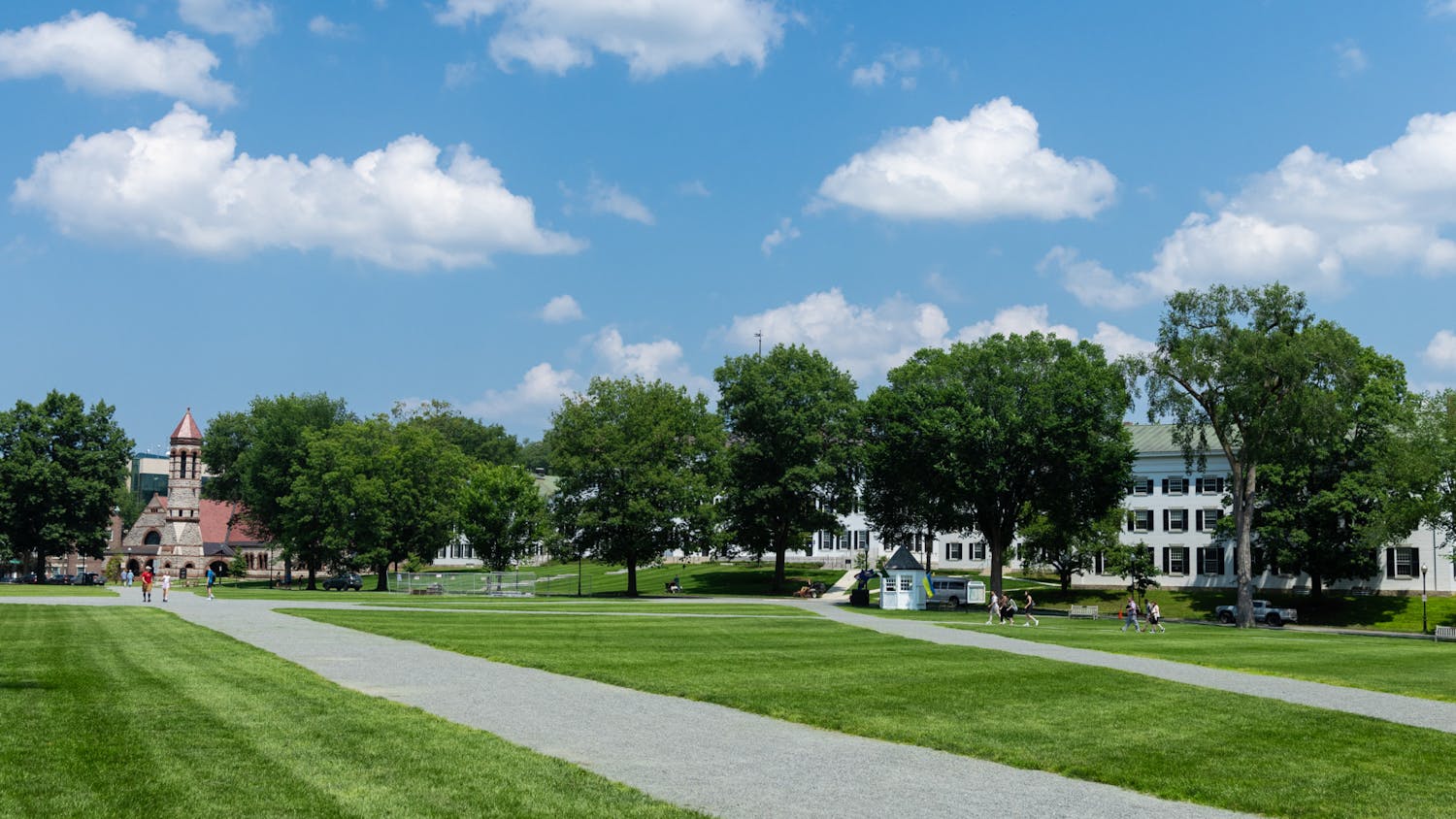The Dartmouth Board of Trustees authorized a 5 percent increase in undergraduate tuition for the 2007-2008 academic year -- the highest increase since 1996 -- at the Board's Winter term meeting, which included discussions on the College's proposed mission statement, need-blind admissions for international students and upcoming construction projects.
"We continue to try to control some expenses, but Dartmouth is a very labor intensive organization," College President James Wright said in an interview. "We have expanded the faculty, we've expanded the physical plant significantly and we have gifts that enable us to do those things, but I think this tuition increase is crucial for us to continue to provide the quality experience that we have."
The 5 percent increase represents an additional $1,668 over this year's tuition, bringing the total charge including room, board and mandatory fees to $45,483. This increase also applies to students enrolled at the Thayer School of Engineering and arts and sciences graduate programs. Tuition for Dartmouth Medical School will also see a 5 percent increase, while tuition for the Tuck School of Business will increase by 5.8 percent.
Wright noted, however, that tuition as a percentage of overall College revenue has decreased.
"The federal grant support going to faculty and faculty research projects, gifts and return on endowment -- all of those categories have become more consequential and tuition as a percentage of total revenue has declined," Wright said. "We are not looking to increase it as significantly as some other places have or as significantly as we have done in the past."
Last year the Board of Trustees authorized a 4.8 percent increase in tuition, compared with a 4.9 percent increase for the 2005-2006 academic year and 4.5 percent for 2004-2005.
"I think that the increase in tuition also needs to include the recognition that we intend to continue to provide the full financial aid necessary so that everyone invited to Dartmouth can come here without regard to that person's family's ability to pay the full amount," Board of Trustees chairman William Neukom '64 said.
The extent to which students are invited to attend Dartmouth without regard for their family's economic means became an issue on the floor of the Student Assembly this past week, as members of the International Students Association and the Assembly worked together to pass a statement calling for need-blind admissions for students from outside the United States, Canada and Mexico.
"We recognize the value of having students from an array of countries here at Dartmouth -- it makes for a better education for the students and the faculty to have them here," Neukom said. "If we were to try to provide full financial aid for all [international students], it would have to come out of some other initiative, so we are in the process of trying to determine those relative priorities and in an ideal world see if we can find some funding for that."
Wright clarified that the Board has annually increased the amount of financial aid available to international students.
"I think international students are now around 6 or 6 plus percent of our undergraduate students and they get around 11 percent or more of the financial aid," Wright said. "I think we all are interested in finding ways to strengthen this more."
Aside from such fiscal matters, the Board also considered feedback from the community regarding the proposed mission statement.
"What we did this weekend was to share with the Board this input and sort of try to do a quick rough-out of how the mission statement might evolve because of this feedback," Wright said.
The majority of the feedback was positive, Neukom said, a fact echoed in a letter Wright sent to the community on Feb. 28. Neukom added that the Board pushed Wright to "do the final edit now and to make sure that [the mission statement] is in his voice."
"At the end of the day it can't read as though it was drafted by a committee," Neukom said.
Wright hoped that the new mission statement would be ready for approval by the Board early in the Spring term.
The Board also considered the College's plans to construct a new life sciences building, two new dining halls and a new visual arts center. According to Wright, the College plans to begin construction on the life sciences building and the Class of '53 dining hall in 2007, although the dining hall may need to go through an extended permit process to procure an exception to town zoning regulations. Construction on the visual arts center is to begin in 2008 and plans for the Thayer Dining Hall redevelopment are not yet complete.
"We are eager to begin the construction of all three of those projects," Neukom said. "We view them as being of high priority in terms of enhancing the Dartmouth learning experience."



